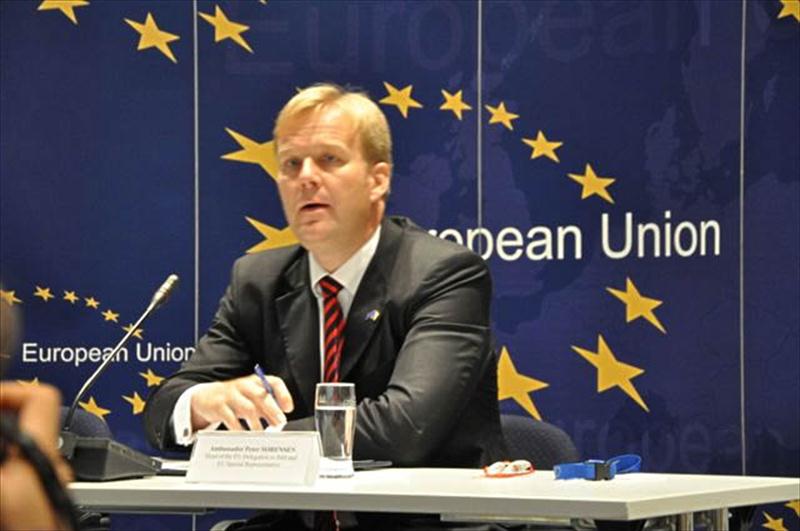Ambassador Peter Sorensen
The EU’s ‘Support to Law Enforcement’ project is entering its final phase, so it’s a good time to reflect on its results on the ‘rule of law’ agenda in Bosnia and Herzegovina (BiH) – a key area for action underlined in the recent Progress Report of the European Commission – and on the challenges that lie ahead.
The overall aim of the project is to help BiH to meet EU standards for rule of law, specifically Chapter 23 (Judiciary and Fundamental Rights) and Chapter 24 (Justice, Freedom, and Security). More precisely, the goal was to assist agencies to improve the capacities and capabilities for fighting organised crime and corruption and to enhance cooperation with the prosecutors and international cooperation. The meeting with senior police management was just held and the project is on the right track.
Fighting organised crime and corruption are of high importance for all our societies, so the project has assisted and advised in drafting the first BiH Serious and Organised Crime Threat Assessment (SOCTA) in line with the Europol methodology. During this exercise, for the first time, the law enforcement agencies shared the intelligence necessary to jointly identify the main threats in this area. Such co-operation is at the heart of how crime is effectively tackled, and this experience can now be put to good use in BiH to develop more regular exchange of intelligence between agencies. The project has also pulled the expertise already present in BiH together – a pool of experts from all BiH law enforcement agencies that jointly work on strategic and operational analysis.
This is just the first step. We are now looking forward to seeing the SOCTA adopted by the BiH Council of Ministers before the end of the year, and followed up by the setting of clear priorities for the fight against organised and serious crime. The strategy needs to come off the paper and translate into successful prevention, investigation and convictions.
Another key area in the fight against organised crime is to make sure that criminals lose the proceeds of crime. This is a highly effective deterrent. So the Project has recently presented minimum legal standards for the seizure of illegally gained assets. Substantial efforts by Governments and Parliaments at all levels are now needed to have these standards implemented into the legislative frameworks of BiH. This will allow the setting up of efficient mechanisms to ensure that crime does not pay.
Cooperation between police and prosecutors throughout the country, particularly in crime scene investigations, was recently reinforced with a first set of relevant Instructions. By signing, the highest police and judicial authorities pledged to ensure that they are implemented so that police and prosecutors can function as a well-coordinated and efficient team – meaning, we hope, more successful prosecutions. The project will provide relevant trainings to make this co-operation happen, however, only a track record of cases will show results.
On the international front, Europol has decided to launch negotiations on an operational agreement with Bosnia and Herzegovina, which would reduce the options for those fleeing justice and bring the country into our European network. Also a working agreement with the European Police College (CEPOL) facilitated by the Project, is now imminent. This will enable BiH law enforcement officers to access e-learning materials, participate in police trainings in different European countries and have lecturers come to BiH to develop police education.
I am particularly glad that the co-operation with the authorities of Bosnia and Herzegovina in this area is at a very good level, and I congratulate Ministers Radoncic, Kurtes and Jovicic, their advisers and officials for their commitment and concrete engagement. It is their involvement and support that has made this a very effective use of EU funds in Bosnia and Herzegovina.
This is all evidence of progress in building cooperation and more effective work at the professional level. This, we believe, will lead, in the coming years, to BiH police services in particular being at the same level with their colleagues from the EU Member States. It is part of the bigger story of BiH coming closer to the EU and eventual membership. A lot has been done. There is still a lot to do – and the EU remains committed to supporting and assisting our BiH partners, who are and of course will remain in the driving seat.




